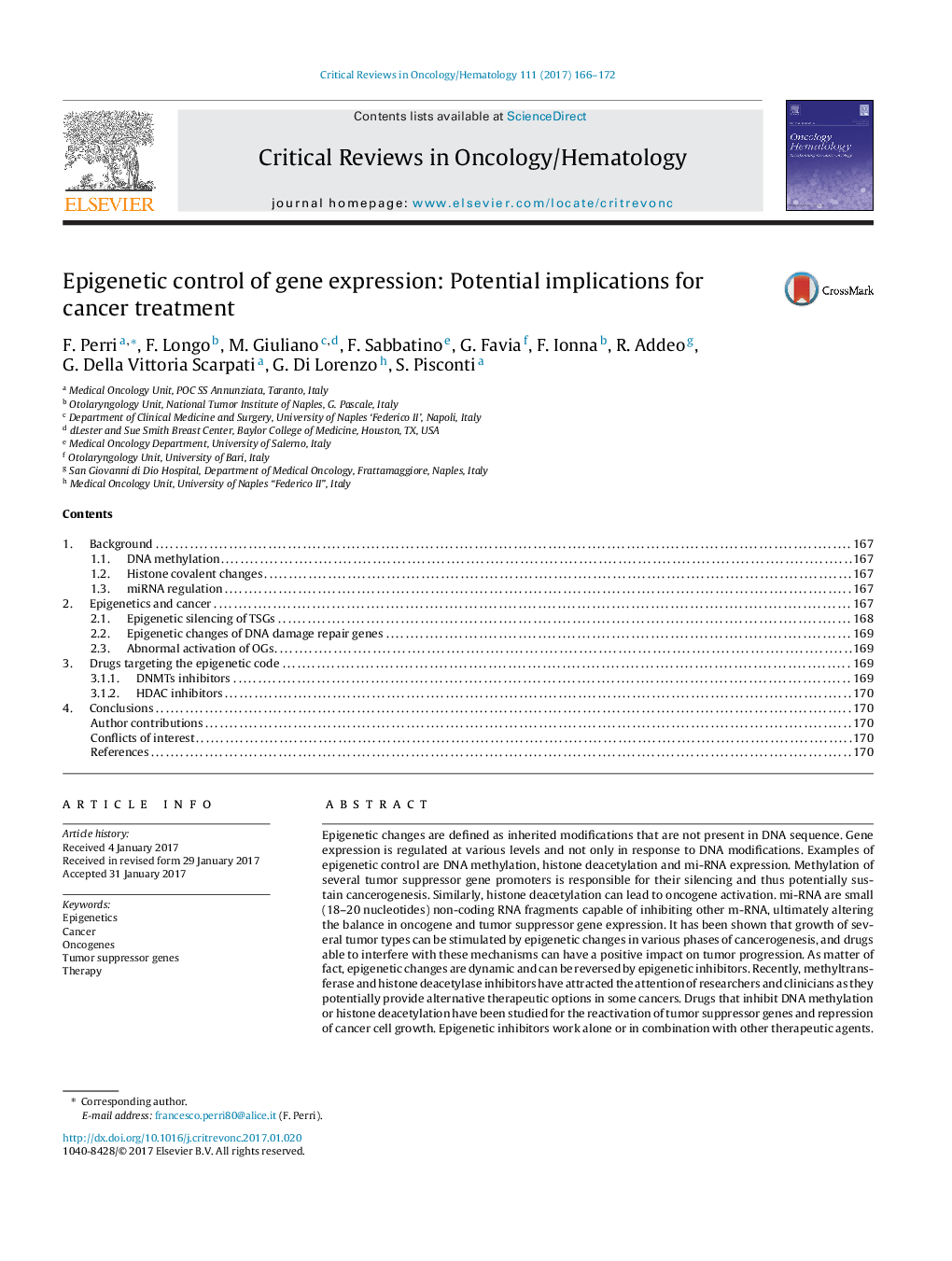| کد مقاله | کد نشریه | سال انتشار | مقاله انگلیسی | نسخه تمام متن |
|---|---|---|---|---|
| 5664022 | 1590706 | 2017 | 7 صفحه PDF | دانلود رایگان |
- The present manuscript describes the impact of epigenetic changes in cancer development, highlighting the crucial role of them mainly in some phases of the carcinogenesis.
- Epigenetic changes do not regard DNA sequence, but they strong influence the expression of tumor suppressor genes and oncogenes, altering their balance and thus favoring carcinogenesis.
- Several drugs targeting the so called 'epigenetic code' have been tested in clinical trials and some of them have yet been approved for use in the clinical practice.
- Nevertheless, the role of epigenetic drugs in the treatment of solid tumors is not as clear as with the other hand it is in those haematological., and in this review we will try to explain the reasons.
Epigenetic changes are defined as inherited modifications that are not present in DNA sequence. Gene expression is regulated at various levels and not only in response to DNA modifications. Examples of epigenetic control are DNA methylation, histone deacetylation and mi-RNA expression. Methylation of several tumor suppressor gene promoters is responsible for their silencing and thus potentially sustain cancerogenesis. Similarly, histone deacetylation can lead to oncogene activation. mi-RNA are small (18-20 nucleotides) non-coding RNA fragments capable of inhibiting other m-RNA, ultimately altering the balance in oncogene and tumor suppressor gene expression. It has been shown that growth of several tumor types can be stimulated by epigenetic changes in various phases of cancerogenesis, and drugs able to interfere with these mechanisms can have a positive impact on tumor progression. As matter of fact, epigenetic changes are dynamic and can be reversed by epigenetic inhibitors. Recently, methyltransferase and histone deacetylase inhibitors have attracted the attention of researchers and clinicians as they potentially provide alternative therapeutic options in some cancers. Drugs that inhibit DNA methylation or histone deacetylation have been studied for the reactivation of tumor suppressor genes and repression of cancer cell growth. Epigenetic inhibitors work alone or in combination with other therapeutic agents. To date, a number of epigenetic inhibitors have been approved for cancer treatment. The main challenge in the field of epigenetic inhibitors is their lack of specificity. In this review article we describe their mechanisms of action and potential in cancer treatment.
Journal: Critical Reviews in Oncology/Hematology - Volume 111, March 2017, Pages 166-172
